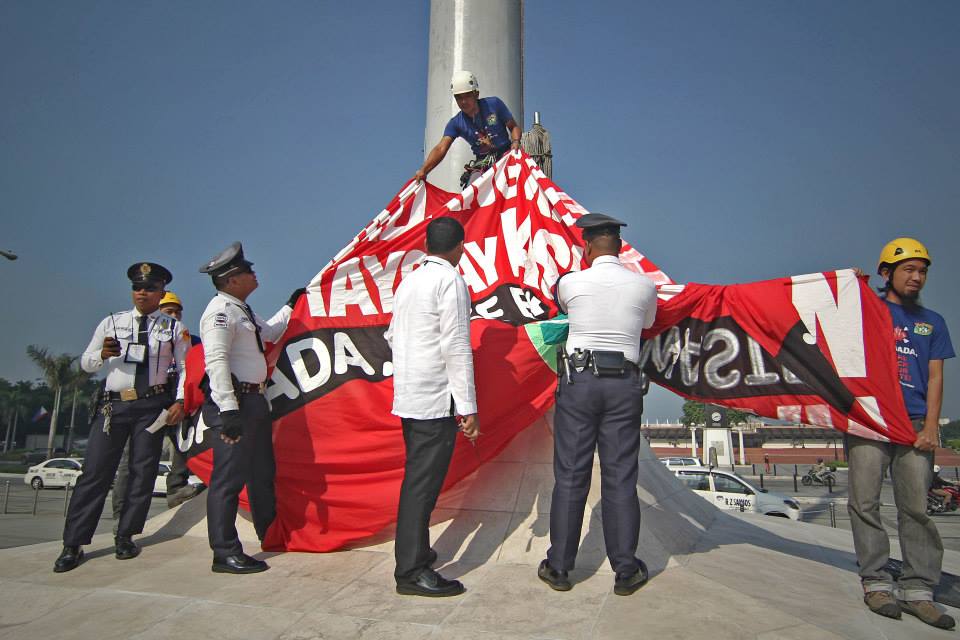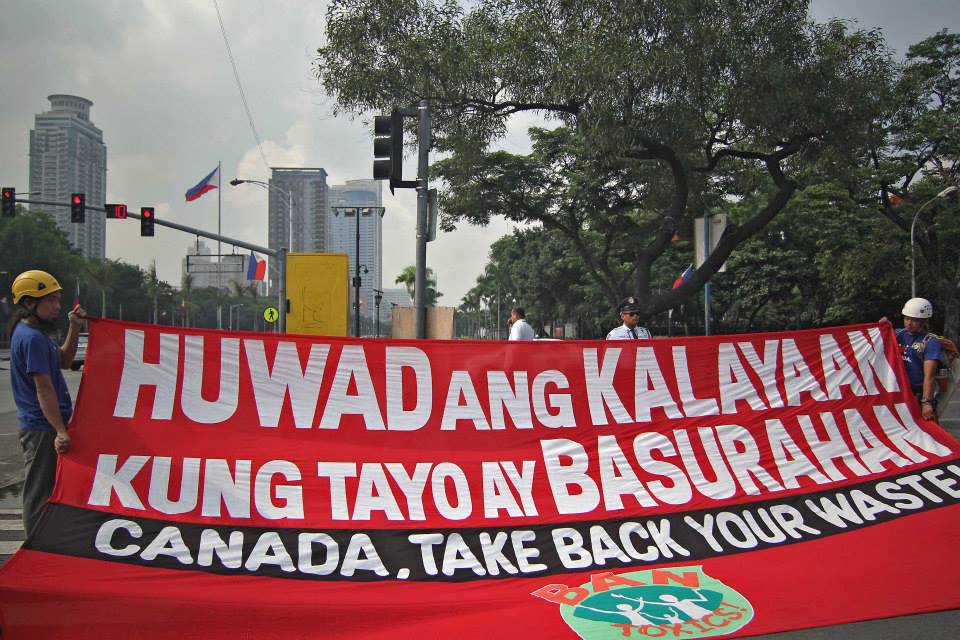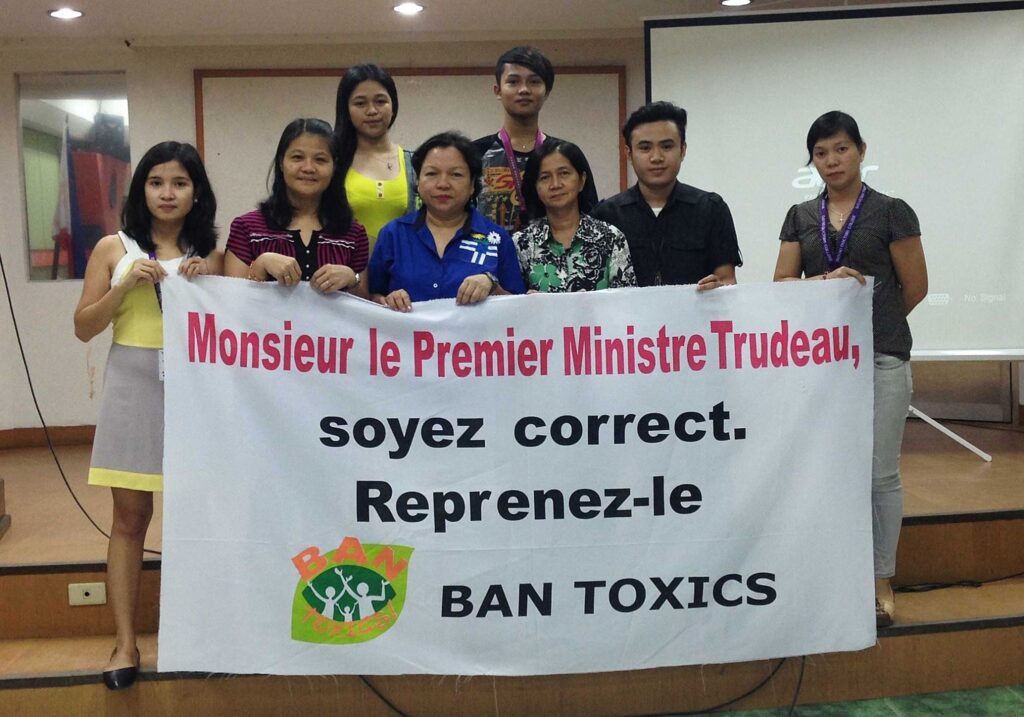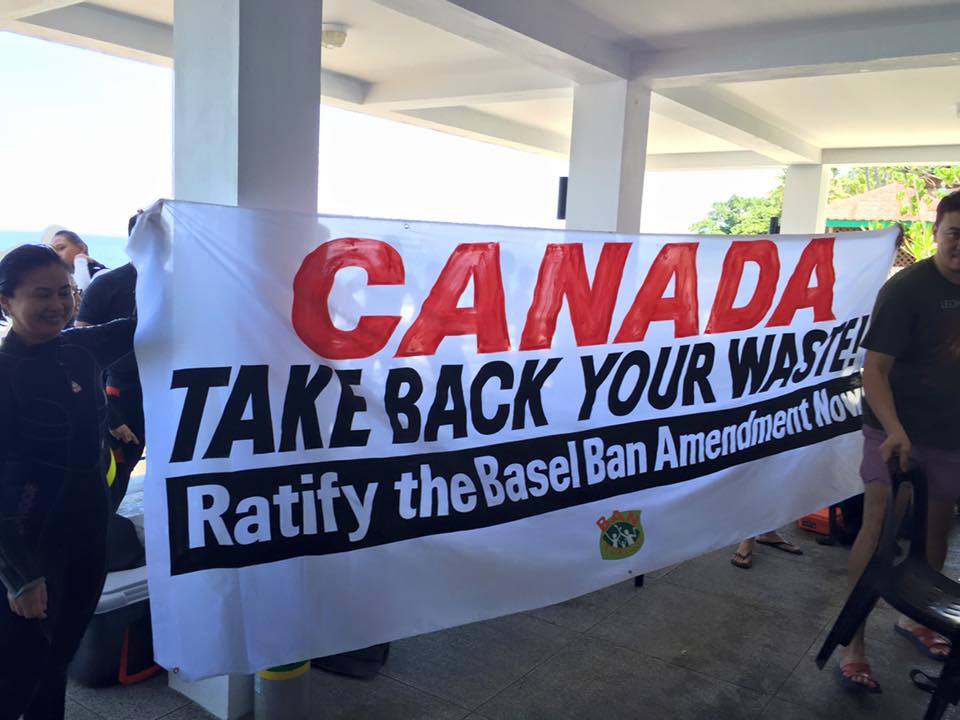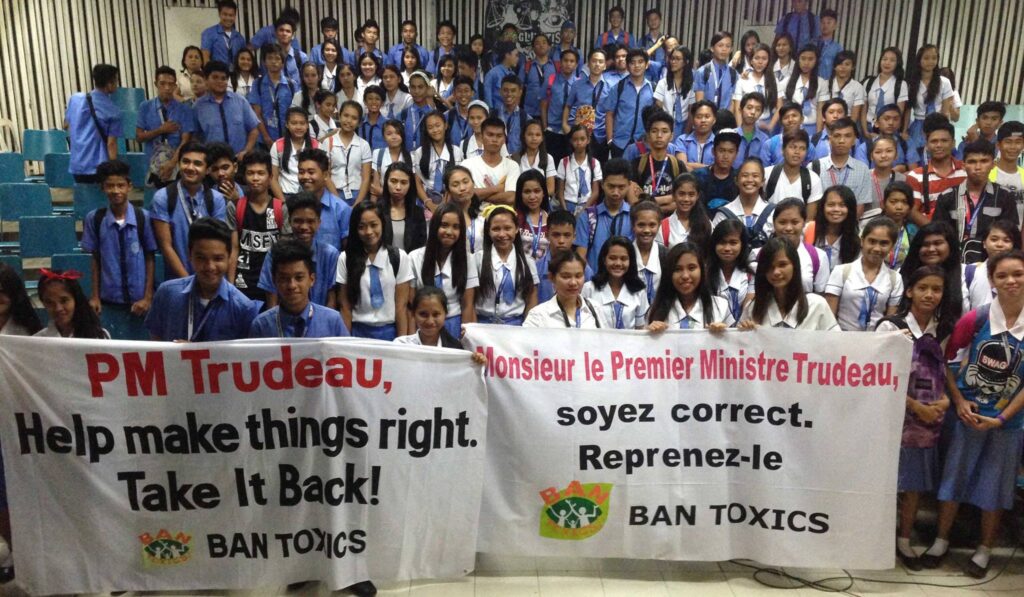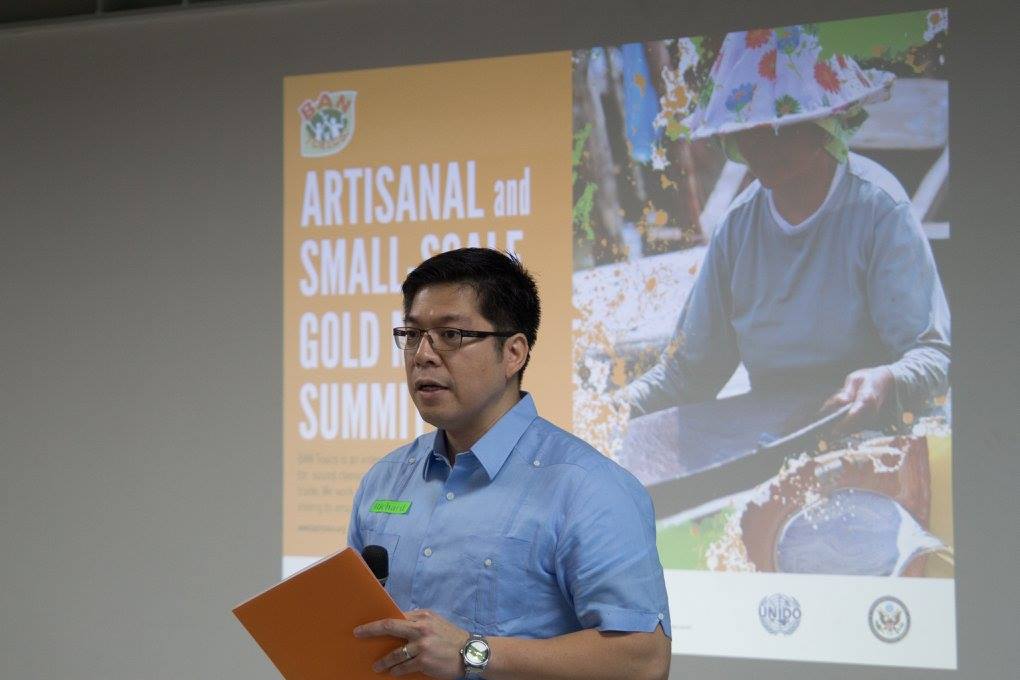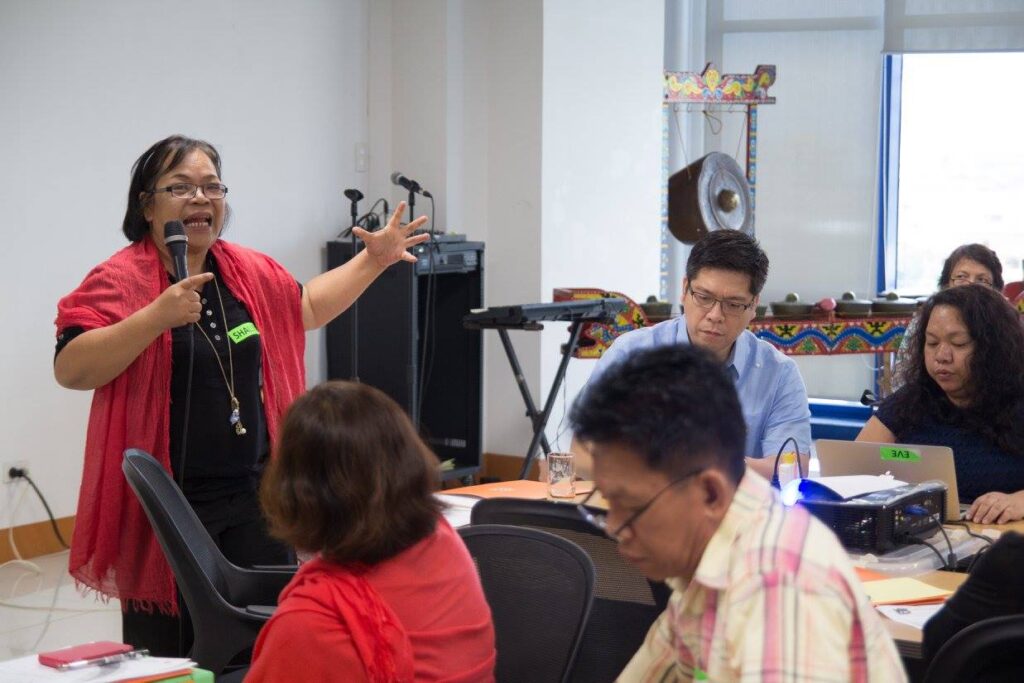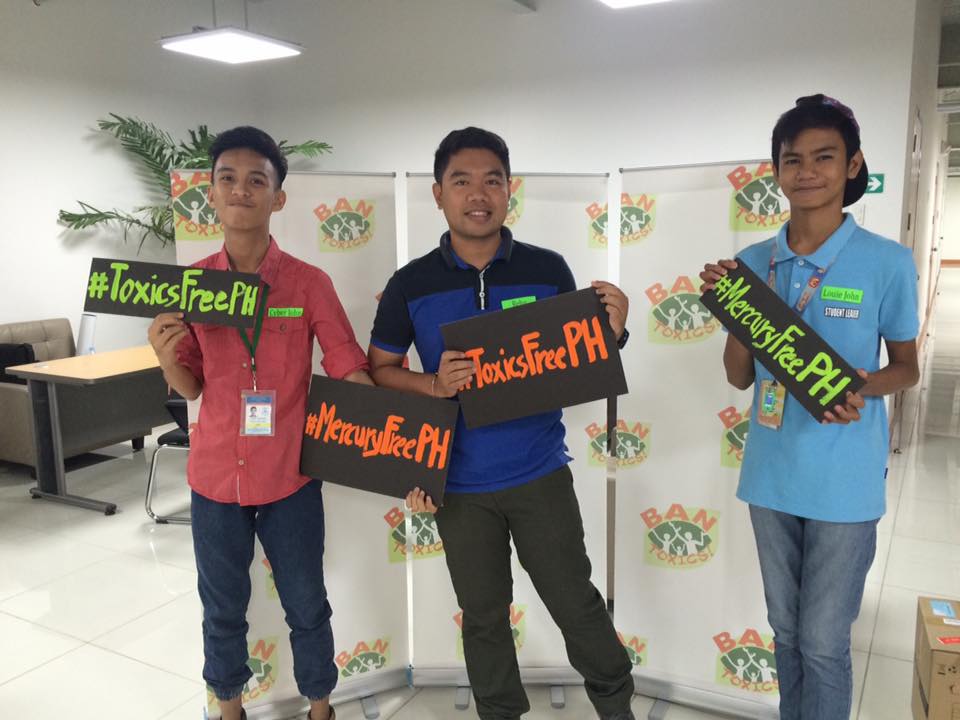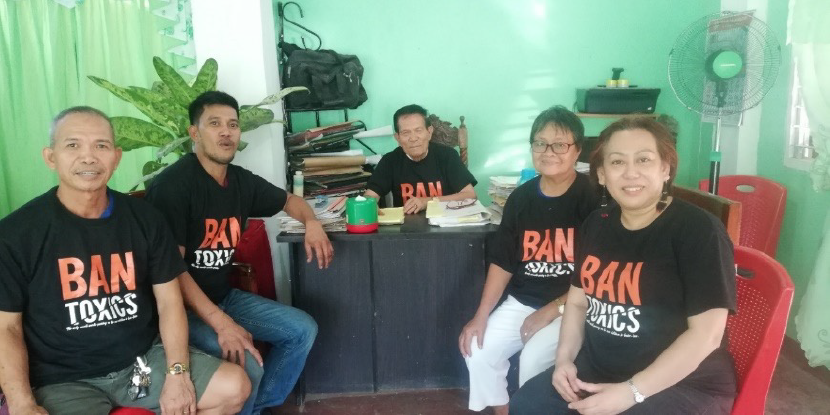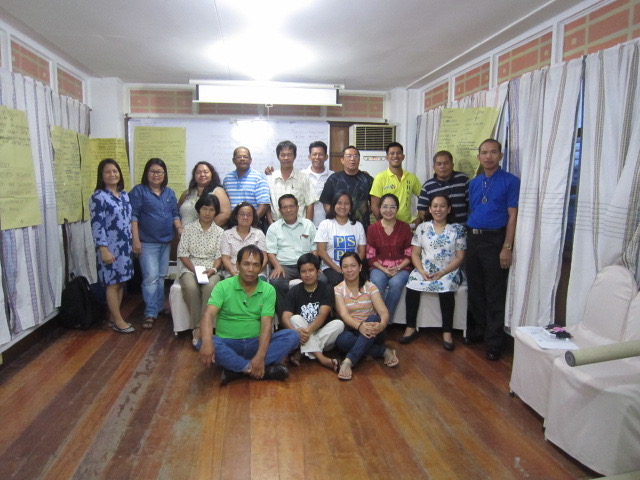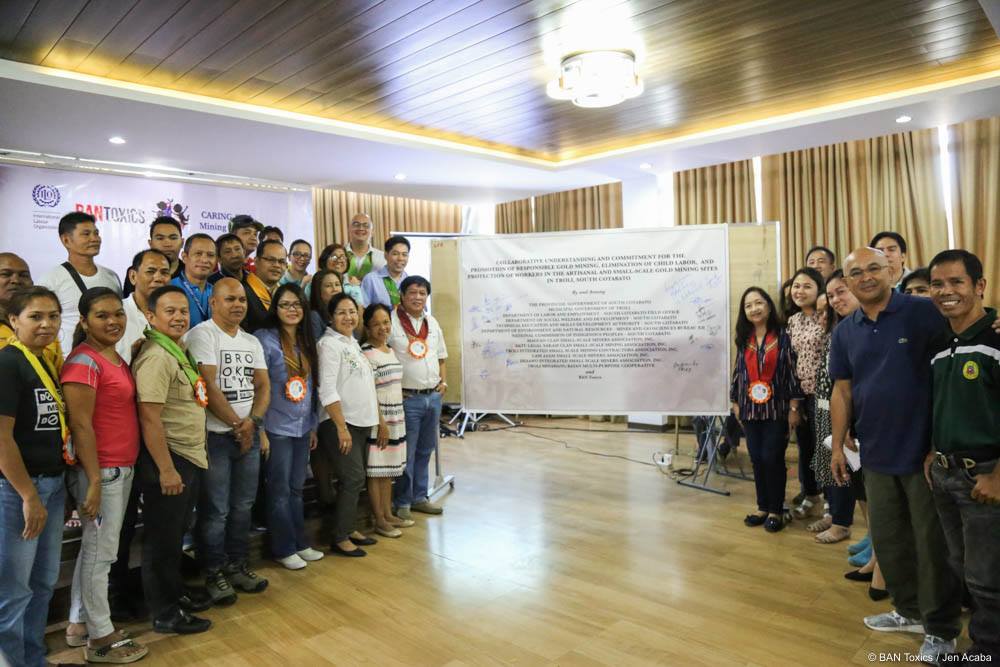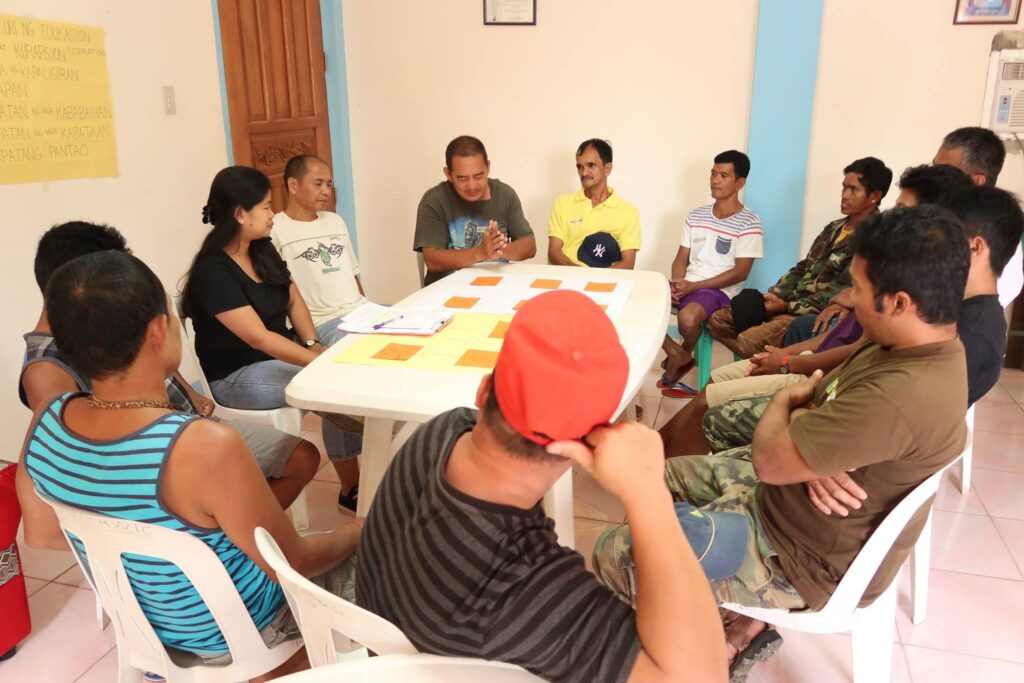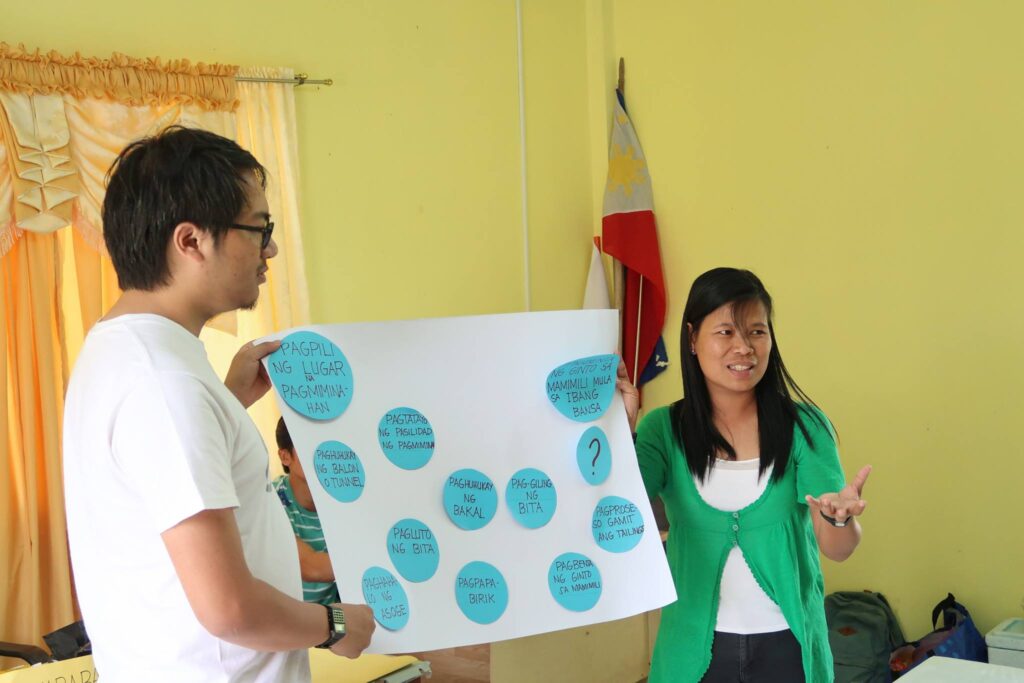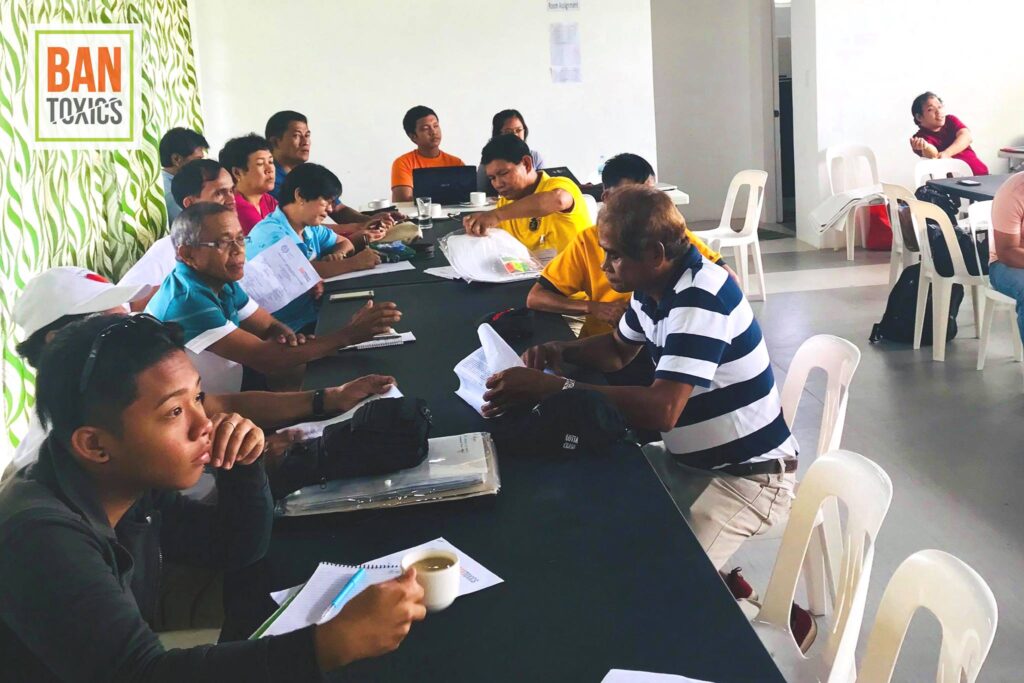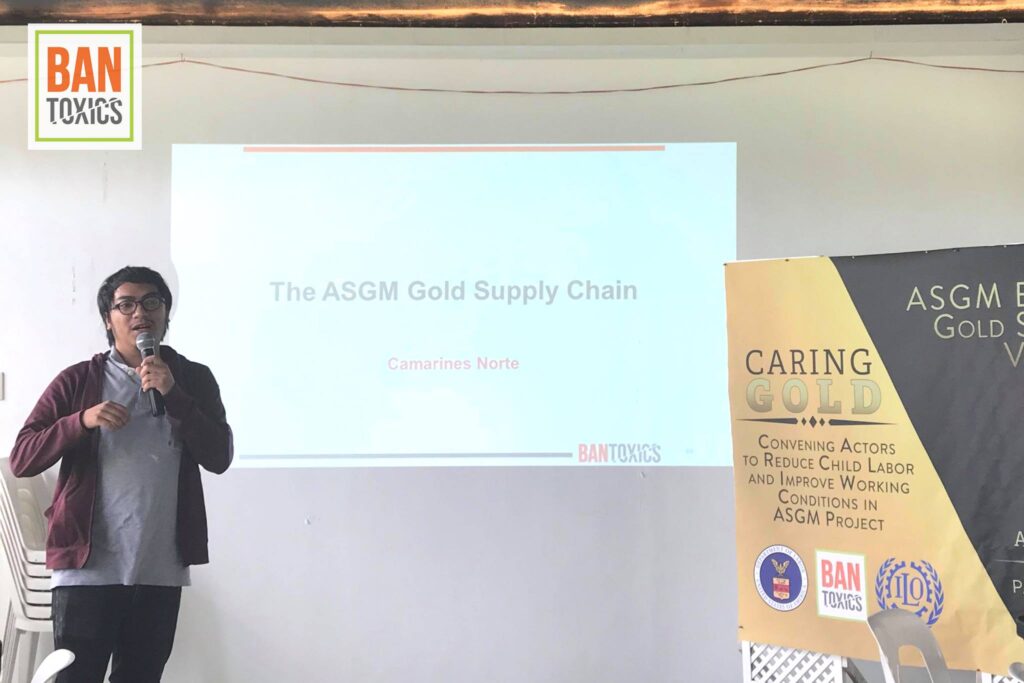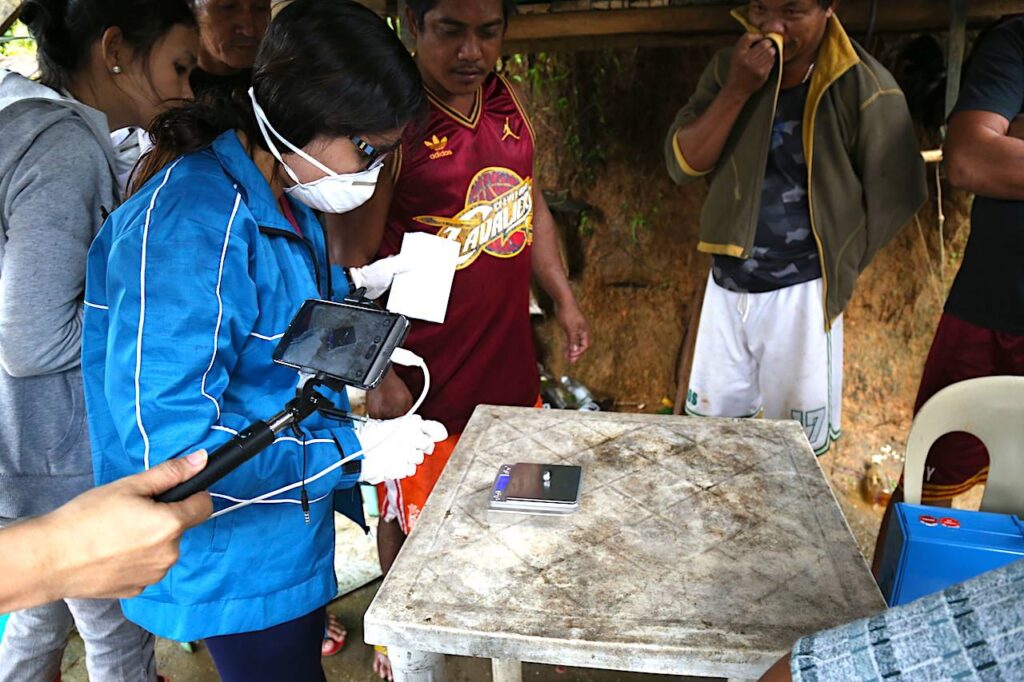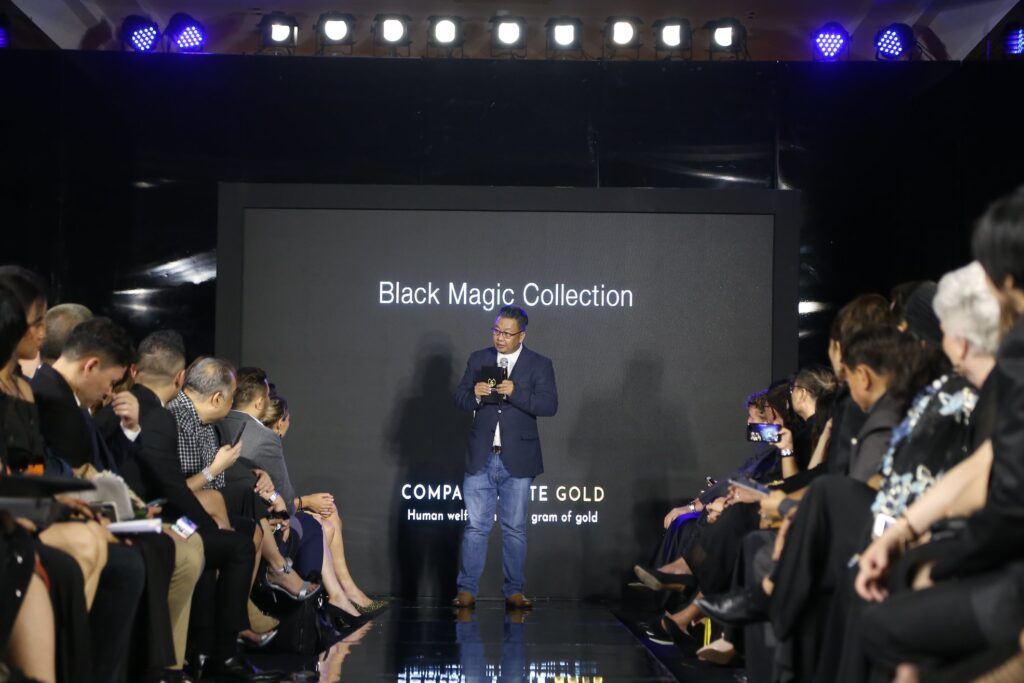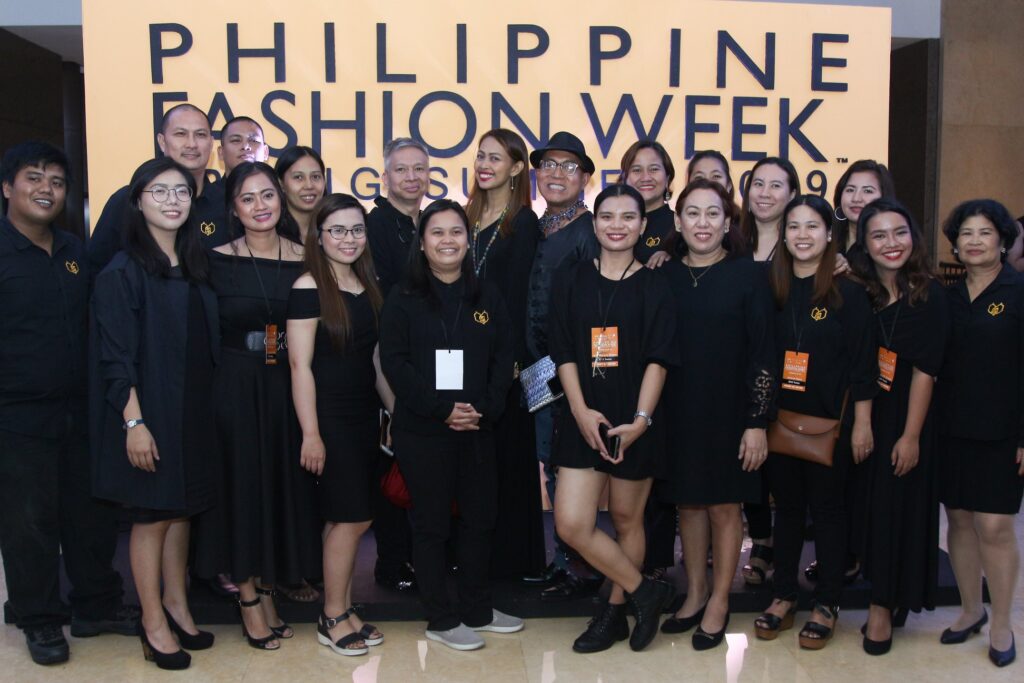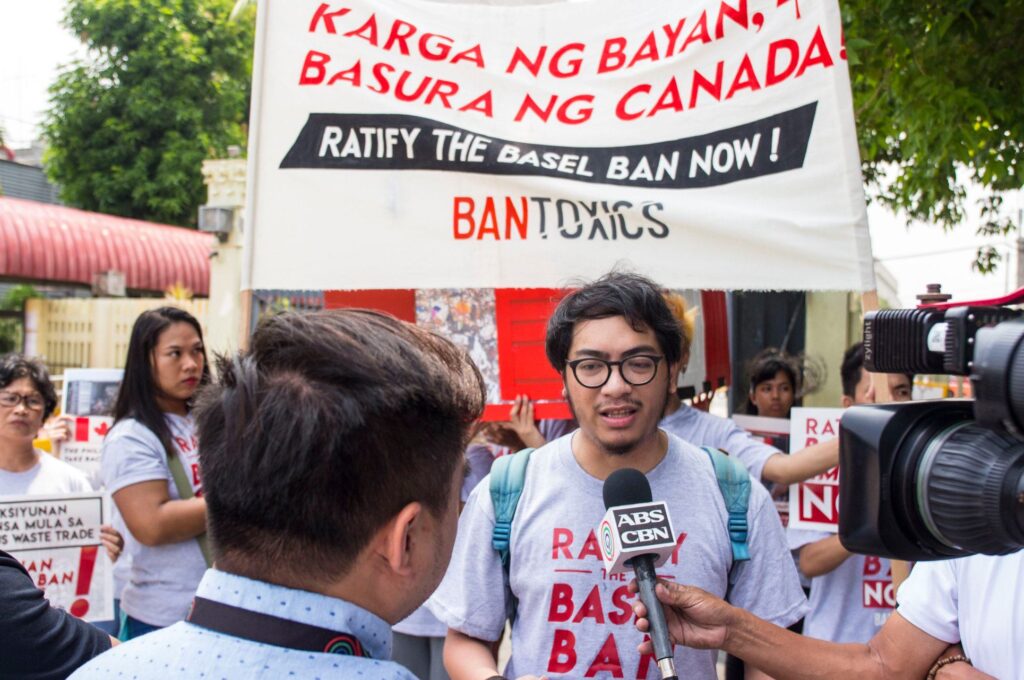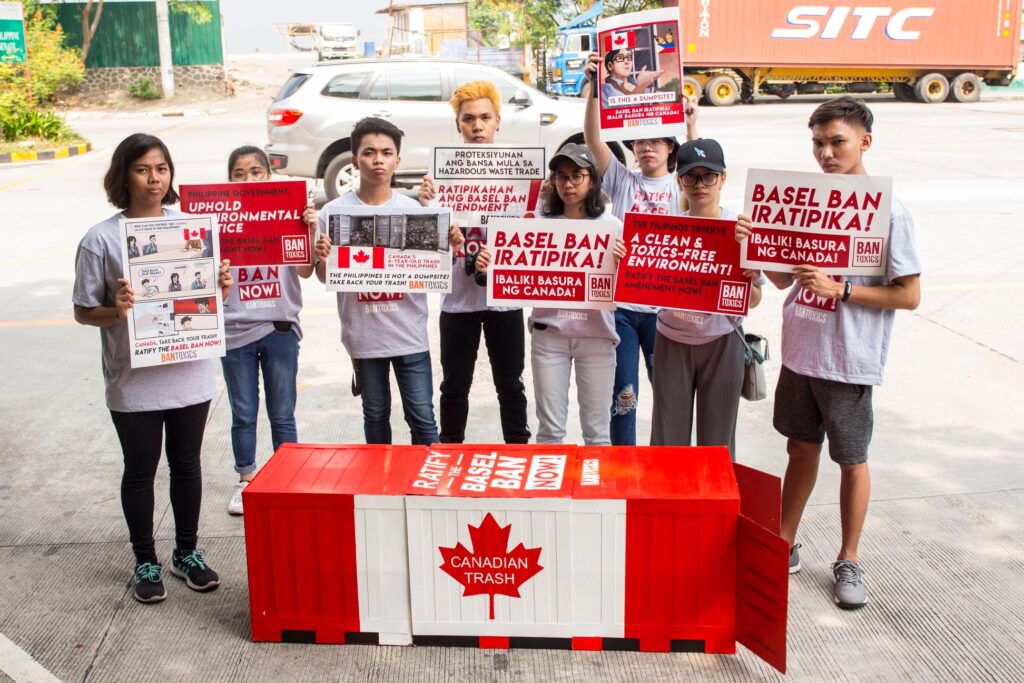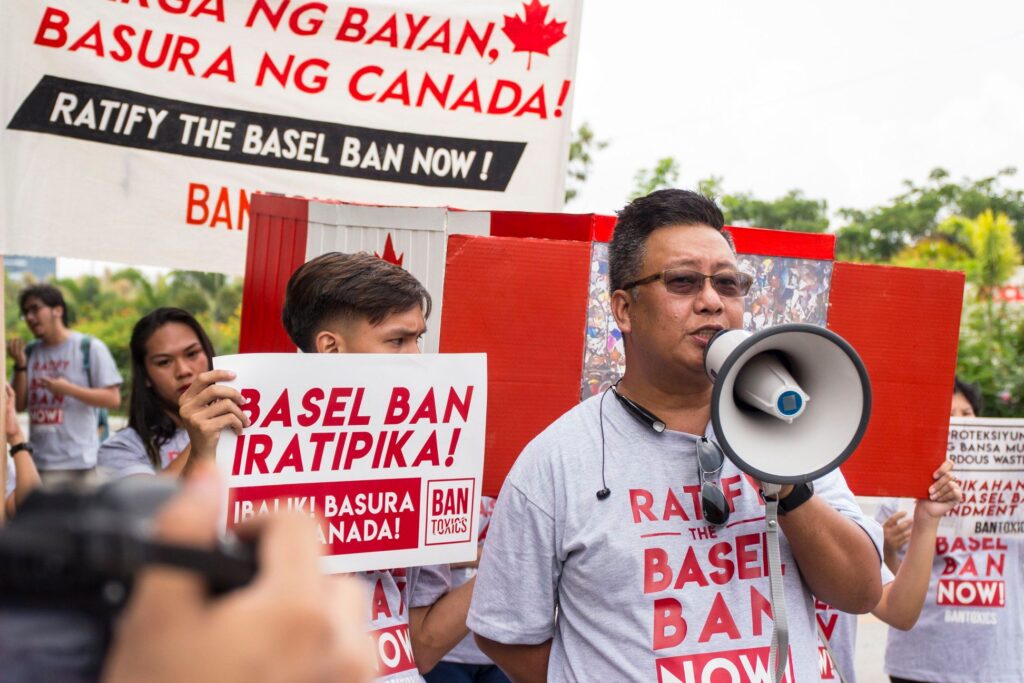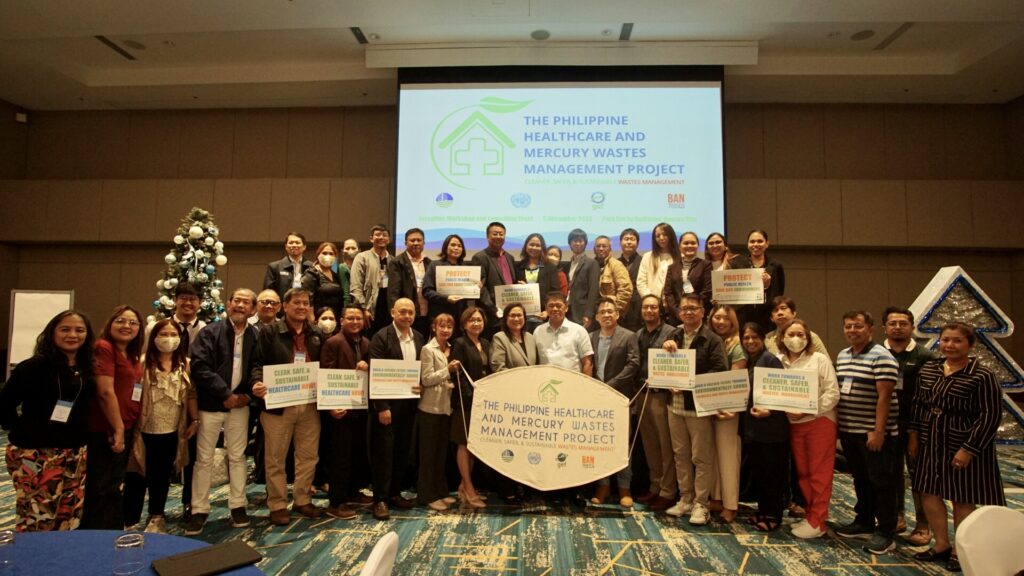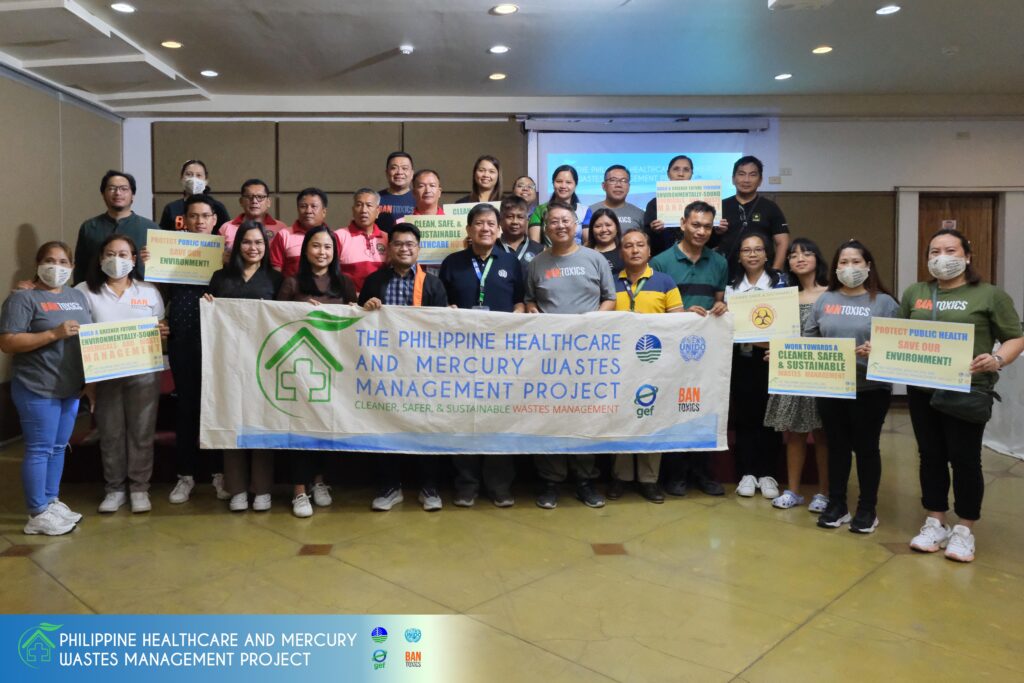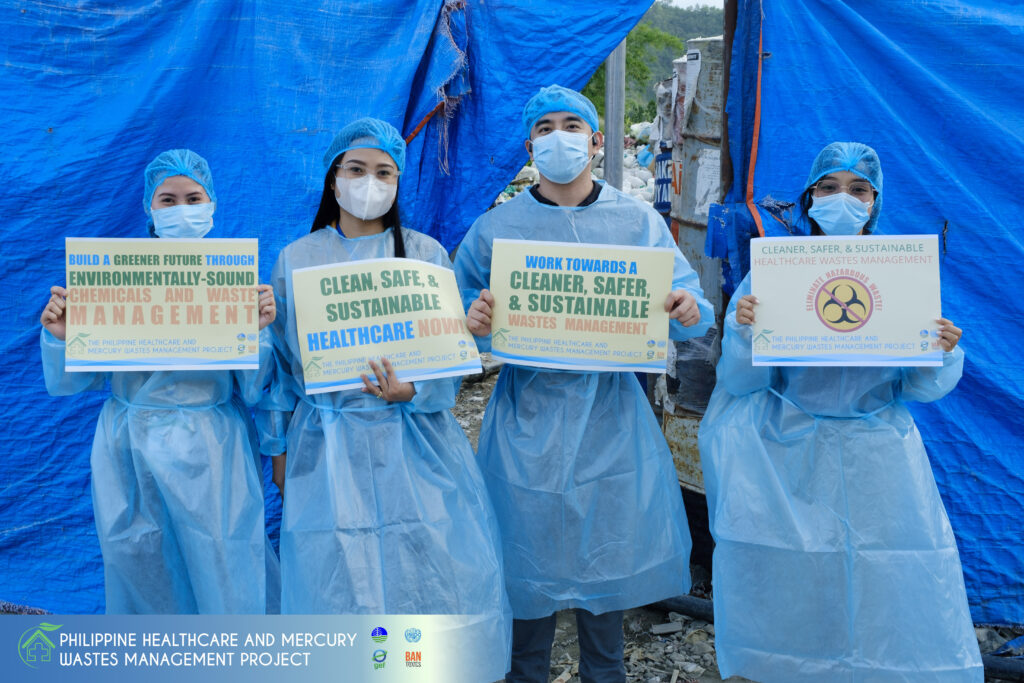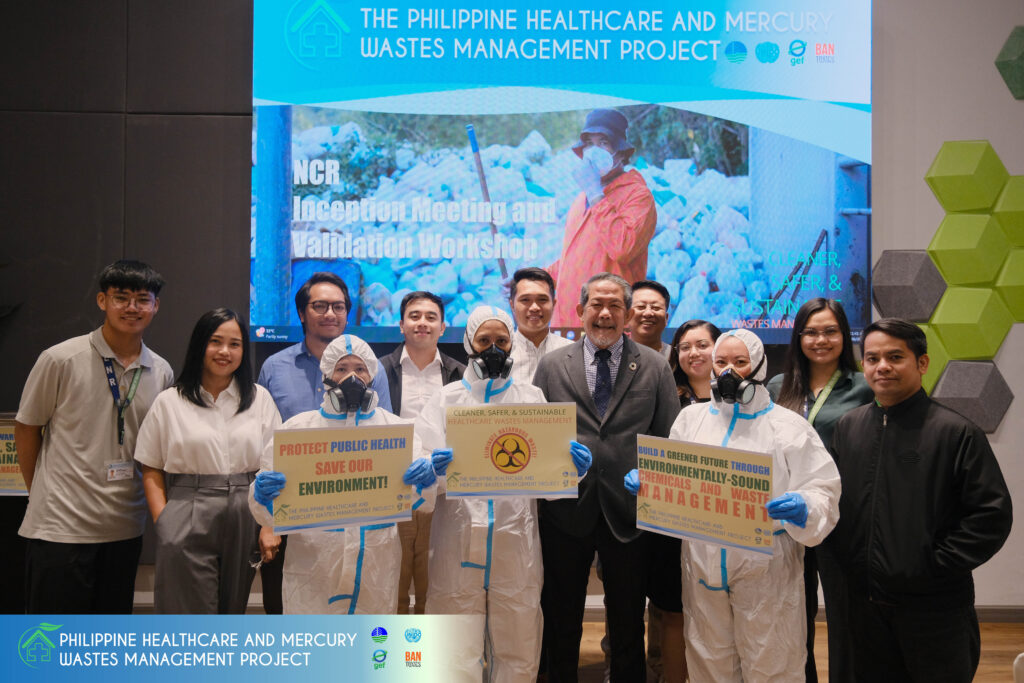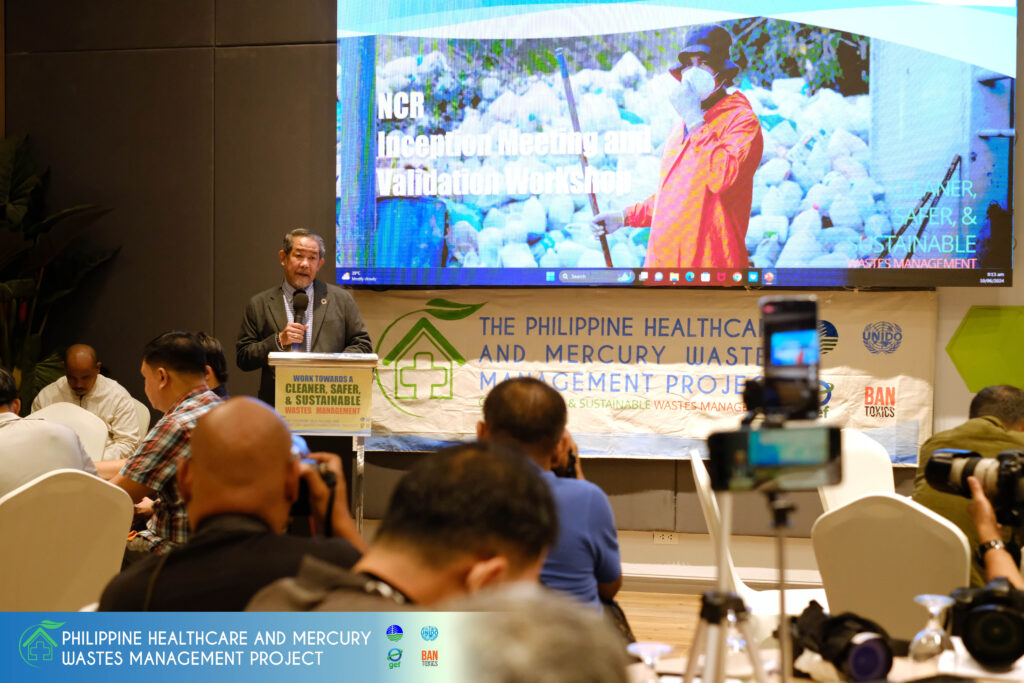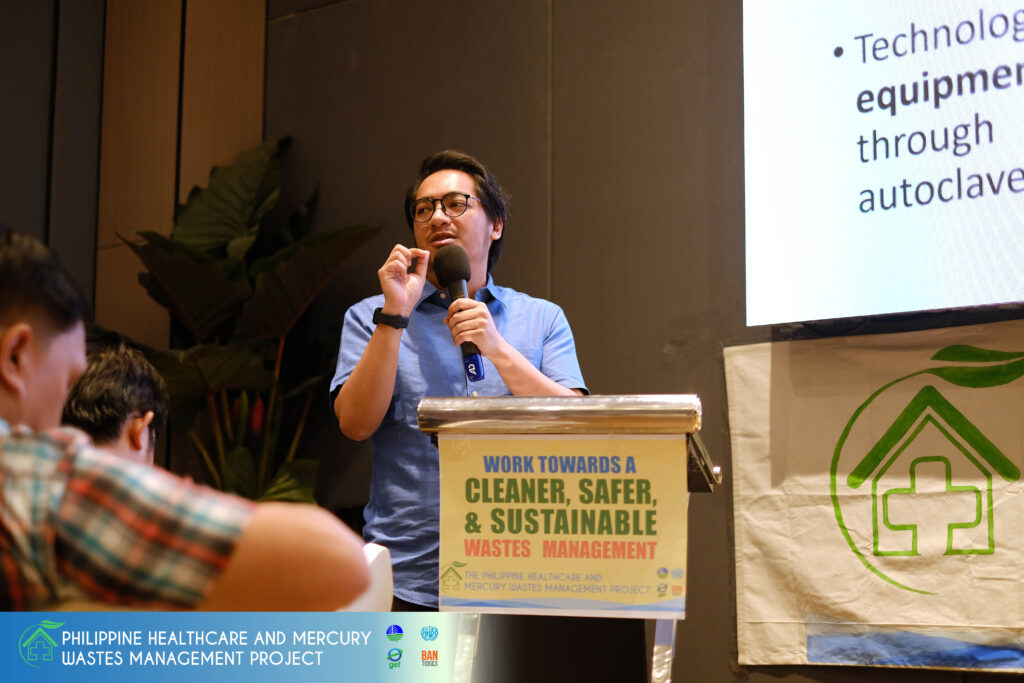Since our establishment on October 11, 2006, we have been at the forefront of the battle against the escalating waste crisis and the ever-increasing exposure of communities to toxic and hazardous chemicals in the Philippines.
Guided by the vision of a toxic-free world that promotes environmental justice, human rights, and sustainable development, we have made significant strides in prompting government institutions to address various landmark issues related to toxic chemicals, waste, and the protection of public health and the environment.
We have collaborated with communities, government agencies, and civil society at local, national, and international levels to reduce and eliminate the use of toxic chemicals while supporting global sustainable development goals through education campaigns, grassroots interventions, training, policy research, and advocacy.
As we reflect on our journey, let’s take a look back at the milestones and achievements that have shaped BAN Toxics over the past 18 years.
2006 to 2012
BAN Toxics was founded on October 11, 2006 by public interest lawyer Richard Gutierrez whose work with US-based Basel Action Network (BAN), a campaigning organization dedicated to ending toxic waste trade, compelled him to form a similar organization based in the global south which was at the receiving end of the trade in hazardous wastes.
Exposed the controversial waste provisions of the Japan-Philippines Economic Partnership Agreement (JPEPA), raising the alarm on the rising volume of e-waste shipments to the Philippines which were being improperly dismantled and disposed in landfills.
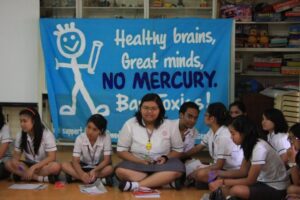
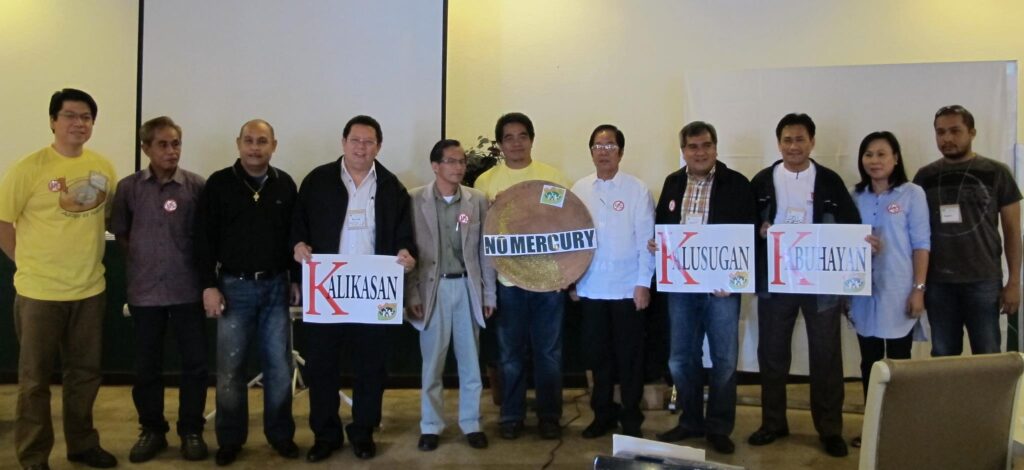
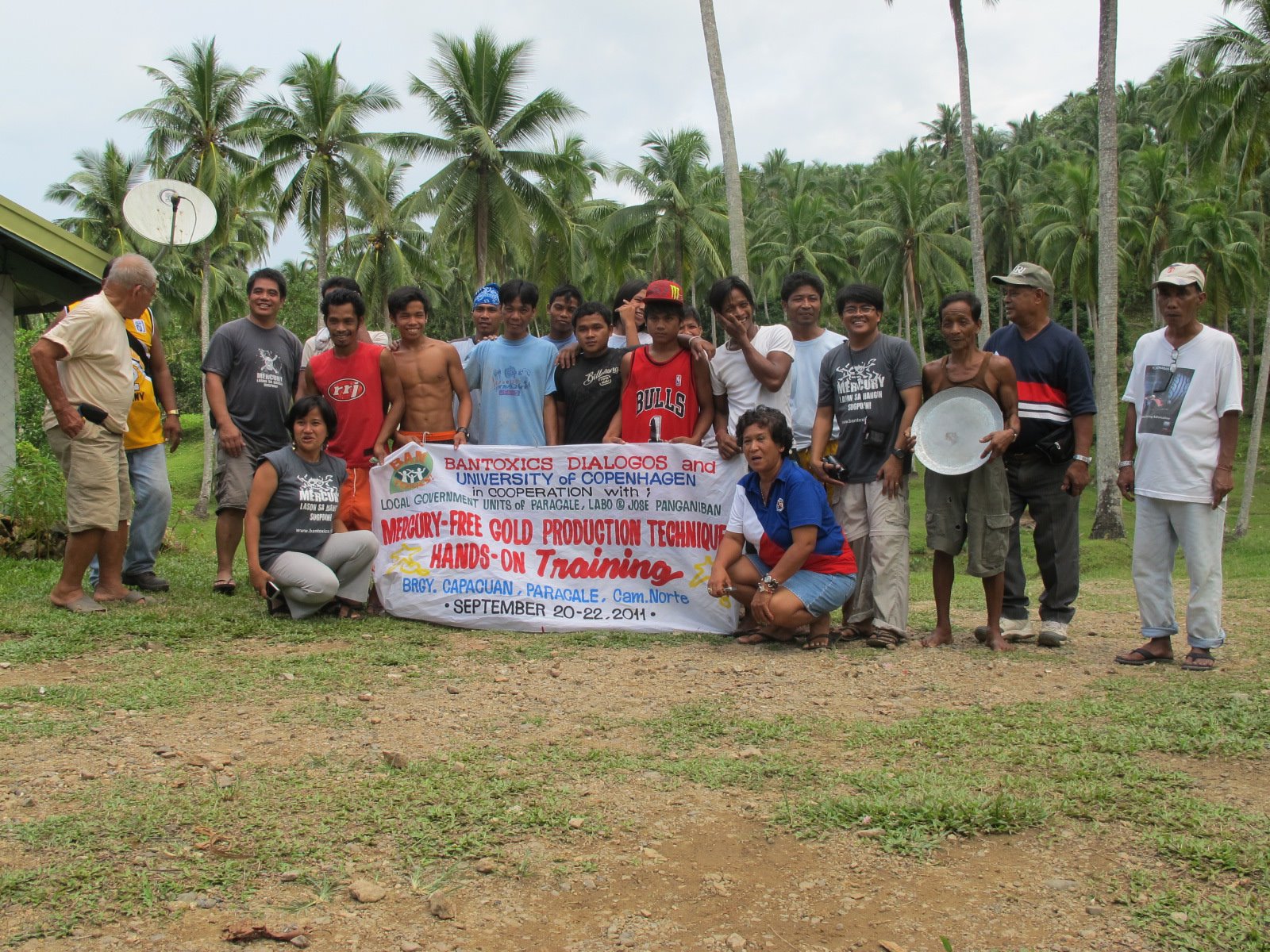
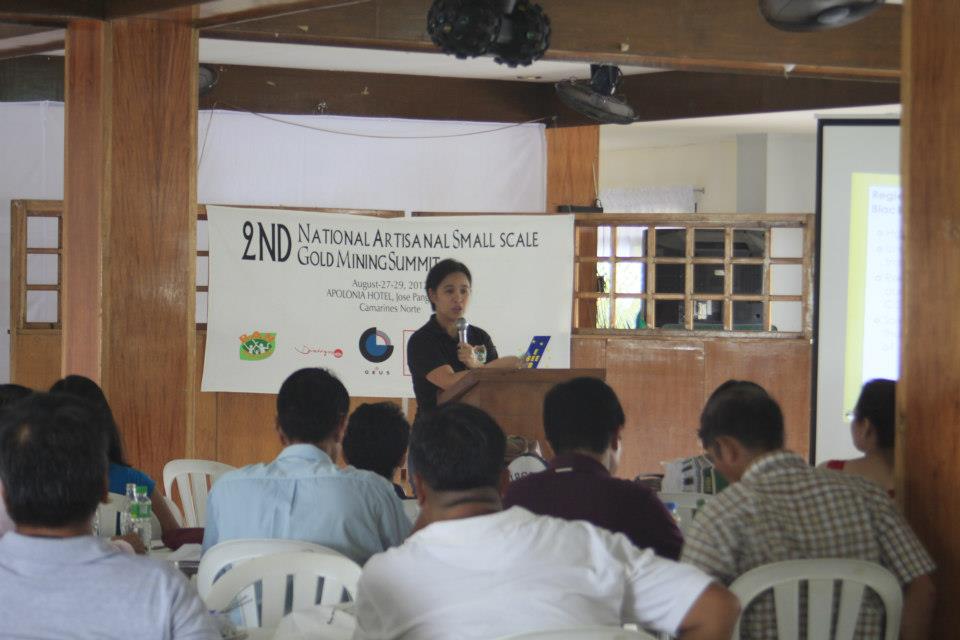
Publications
- Mercury and Artisanal Small scale Gold Mining (ASGM) in the Philippines | 2010
- The Price of Gold | 2010
- Chasing Mercury: Measuring Mercury Levels in the Air Across the Philippines | 2011
- Mercury Fact Sheet: A Primer on Mercury | 2012
- Mercury Trade in the Philippines | 2012
2013-2018
Implemented the project titled “Improve the Health and Environment of Artisanal Gold Mining Communities in the Philippines by Reducing Mercury Emissions,” in partnership with the DENR, the U.S. Department of State, DIALOGOS, and UNIDO | 2013-2015
Launched the Toxics-Free Schools Program (TFSP) in 2013, which originated from the Mercury-Free Schools Program.
Kalinga Provincial Summit on ASGM held in 2013
First Women Miner’s Summit, held in Baguio in 2013
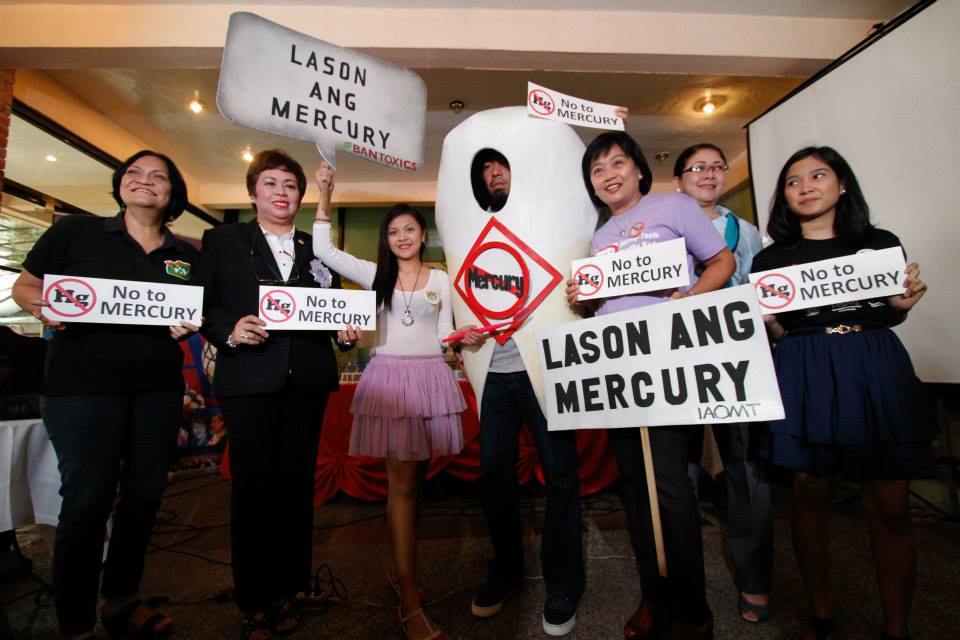
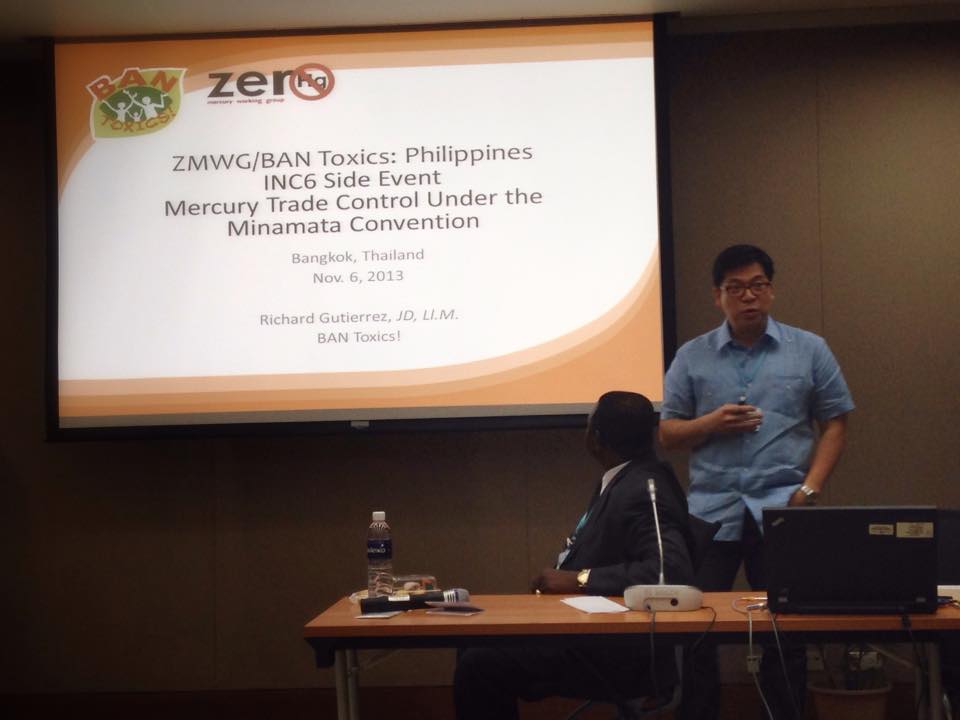
Campaign Against the Illegal Shipment of Canada Waste
In January 2014, a shipment of garbage from Canada was discovered at the Manila International Container Port, making it the most prominent incident of foreign waste dumping in the Philippines. Together with other advocacy groups, BAN Toxics launched a campaign that led to a Philippine court ruling in 2016 that the shipped garbage must be returned.
Implemented mercury-monitoring projects in ASGM with support from the Takagi Fund for Citizen Science, and the Foundation for Philippine Environment
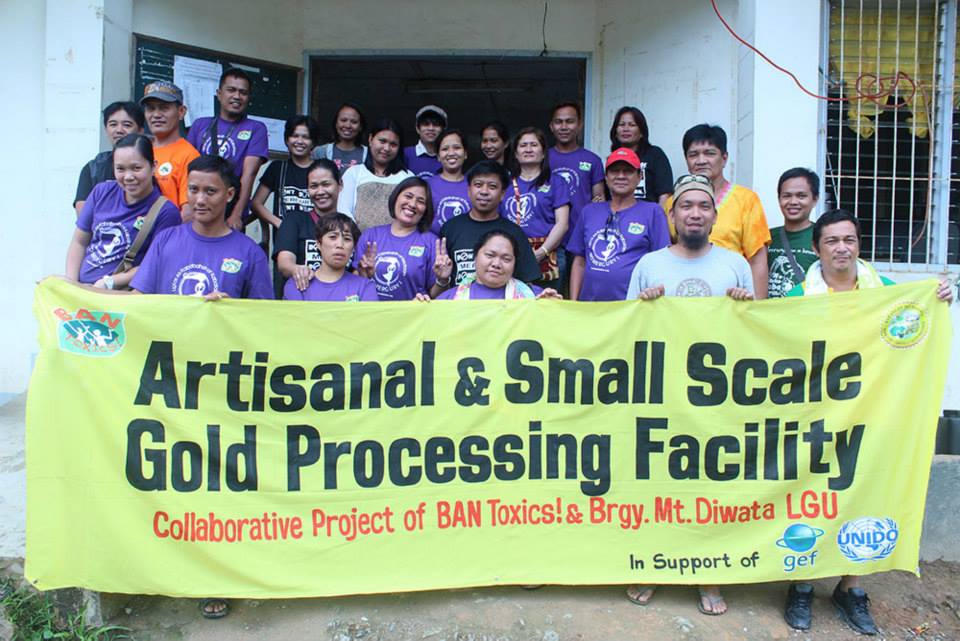
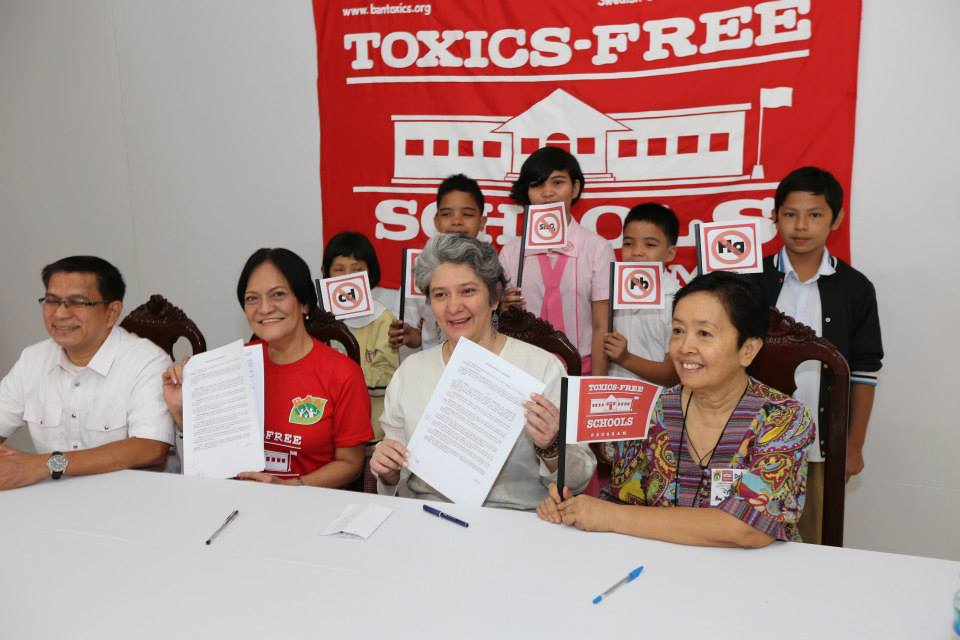
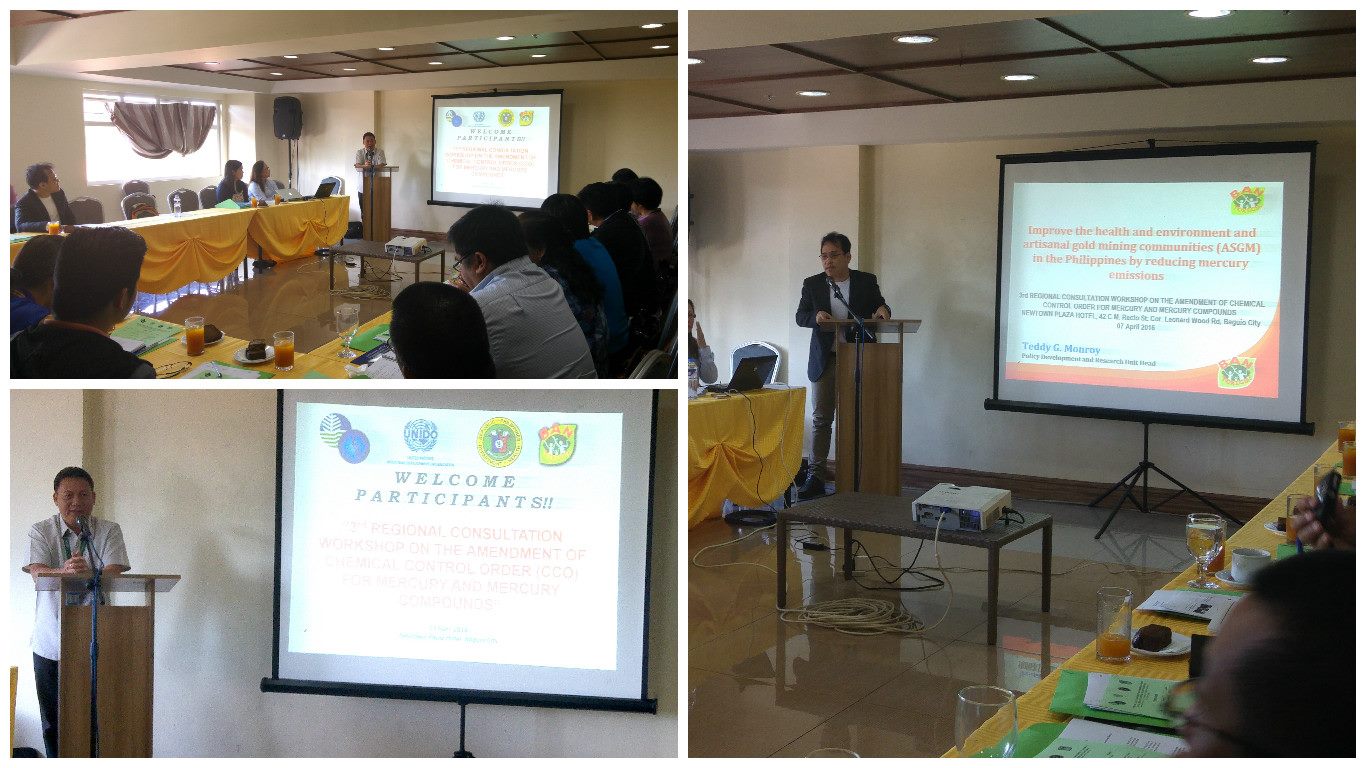
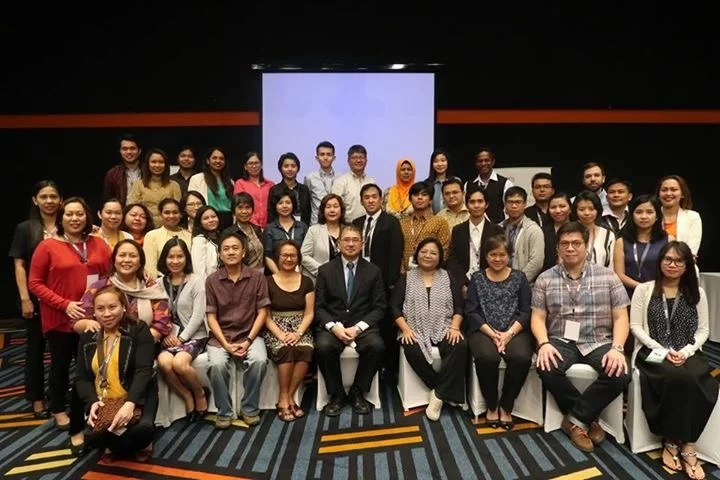
Held the 4th National Summit on ASGM, which led to the formation of the National Coalition of Small-Scale Miners in the Philippines, Inc. (NCSSMPI) in 2016. BAN Toxics has served as the Coalition’s secretariat to this day.
Implemented the project titled “Convening Stakeholders to Develop and Implement Strategies to Reduce Child Labor and Improve Working Conditions in Artisanal and Small-Scale Gold Mining” or “CARING Gold,“ from 2016 to 2019, with support from the International Labor Organization (ILO). Under CARING Gold, BAN Toxics carried out several activities and initiatives including:
- The Strategic Helpdesk for Information, Education, Livelihood and other Developmental Interventions (SHIELD) was launched as an initiative against child labor and the improvement of working conditions in ASGM. This led to three municipalities adopting the program after its pilot implementation.
- ASGM Baseline Profile and Gold Supply Chain Report Validation Workshop
- Environmental Assessment of ASGM communities in Camarines Norte
- Policy Development and Research efforts towards the formalization of ASGM
- Compassionate Gold: BAN Toxics’ branding on responsible gold from the artisanal and small-scale mining (ASGM) sector. It was first piloted in T’boli, South Cotabato in 2018. The branding, an off-shoot project of the CARING Gold project, features gold mined through legal methods that are not harmful to health and the environment, mercury-free, and child labor-free. BAN Toxics partnered with Philippine Fashion Week and introduced a line of fashion jewelry made from Compassionate Gold.
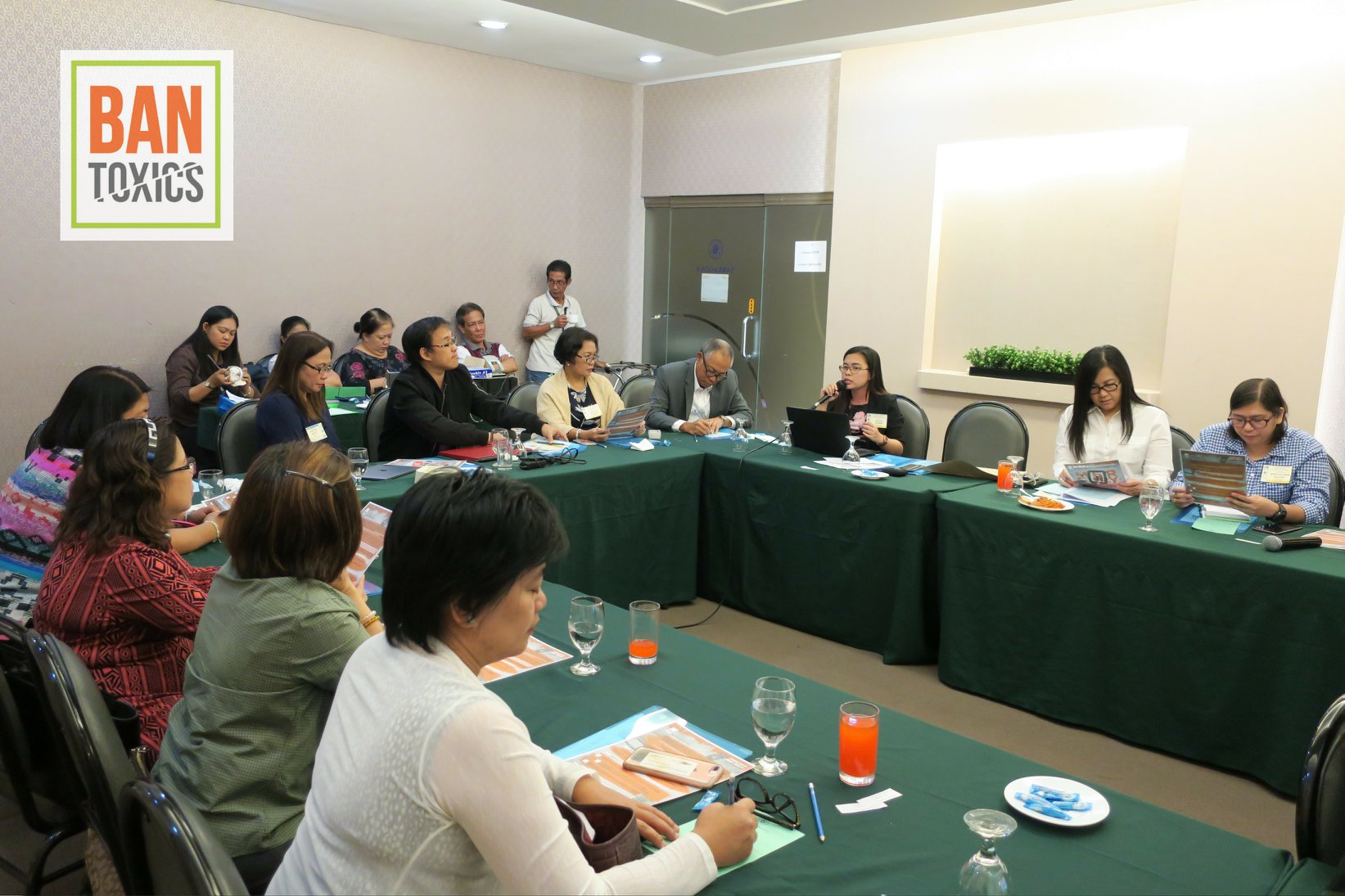
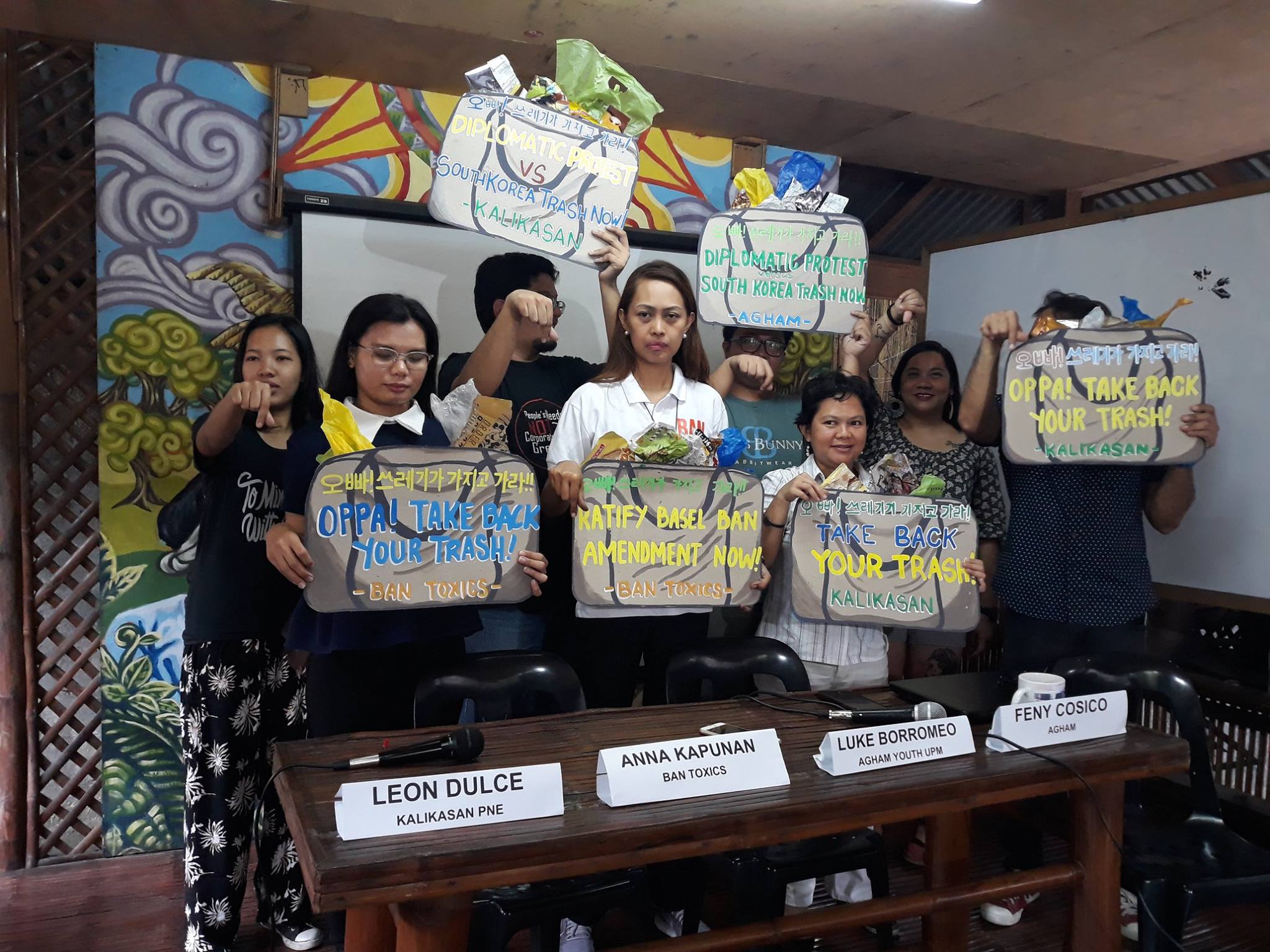
Implemented Project CLEAR, or ‘Creating Local Engagements in ASGM Through Research and Capacity Building,’ with funding support from USAID.
Participated in the Asia-Pacific Regional Meeting in preparation for the Second Conference of Parties (COP2) of the Minamata Convention on Mercury.
Conducted Toxics-Free Schools Program training for teachers at T’boli National High School
Implemented the research project Illicit Mercury Flows in the Philippines (Shared Resources, Joint Solutions) | 2018 to 2021, with support from International Union for Conservation of Nature (IUCN NL)
Publications:
- Minamata Convention on Mercury Ratification: And Implementation Manual | 2014
- Investigating Mercury: A Guide to Environmental Monitoring | 2014
- A Guide to Understanding the Life Cycle Approach as Applied to Artisanal and Small-Scale Gold Mining | 2014
- The Situation and Roles of Women in Artisanal and Small-Scale Gold Mining Communities | 2014
- Working with Women and Children in ASGM: A Training Module | 2014
- Development of National and Regional Approaches to Environmentally Sound Management of Mercury and Mercury Monitoring in Southeast Asia: Learnings and Final Report | 2015
- A Primer on Human Rights and Toxic Chemicals | 2015
- Participatory Research and Action Guide to Monitoring Mercury Use in ASGM in the Philippines: A Community-Based Monitoring Approach | 2016
- What’s Up in the Air? Mercury Vapor Levels in Dental Institutions | 2016
- Demystifying the Impacts of a Basel Ban Amendment Ratification by the Philippines | 2016
- Follow the Money: The Philippines | 2017
- Participatory Research and Action Guide to Monitoring Mercury Use in the Philippines
Mercury Trade in Asia | 2017 - Addressing Mercury Pollution in Cambodia’s Artisanal Small-Scale Gold Mining Communities | 2017
- Civil Society and Government Plan for Sound Chemicals Management in Mongolia | 2017
- Local Action Plans for Mercury Elimination and Management in the Artisanal and Small-Scale Gold Mining Communities in the Philippines | 2017
- Project CLEAR Terminal Report | 2019
2019-2024
Launched an intensified campaign in 2019, calling on the Senate to ratify the Basel Ban Amendment, an international treaty prohibiting the transboundary movement of wastes from rich to poorer countries. The campaign also called on the immediate return of the 2013 Canada Waste to its origin.
Participated in the Inter-Agency Technical Working Group (IATWG) Meeting for the Philippine Minamata Initial Assessment Project in 2019
Carried out Lobbying & Communications Workshop for ASGM in 2019, held in Jose Panganiban, Camarines Norte as part of the CARING Gold Project.
Implemented the research project “Illicit Mercury Flows in Vietnam, ” with support from the Natural Resources Defense Council (NRDC) | 2020-2021
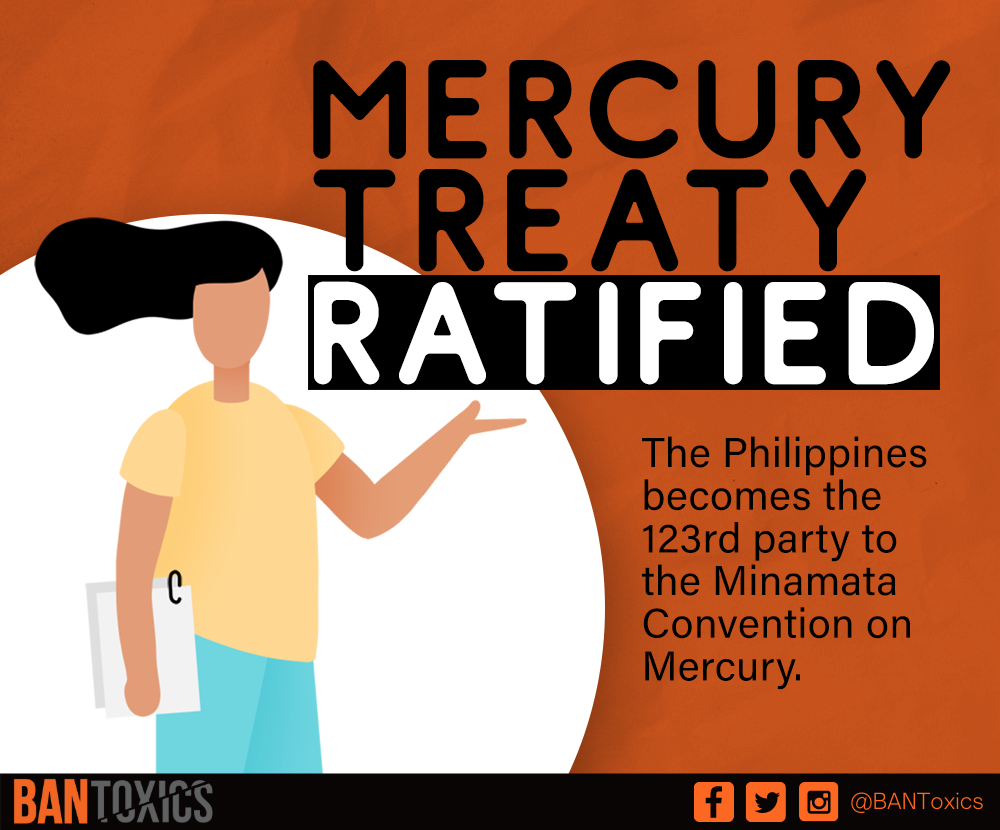
Ratification of the Minamata Convention on Mercury and the signing of DOH DAO 2020-0020, “Guidelines on the Phase-Out of Mercury in Dental Restorative Procedures,” in 2020. BAN Toxics’ pioneering work on the elimination of mercury use through policy development, lobbying, research, and awareness campaigns has significantly contributed to the development of these important policies.
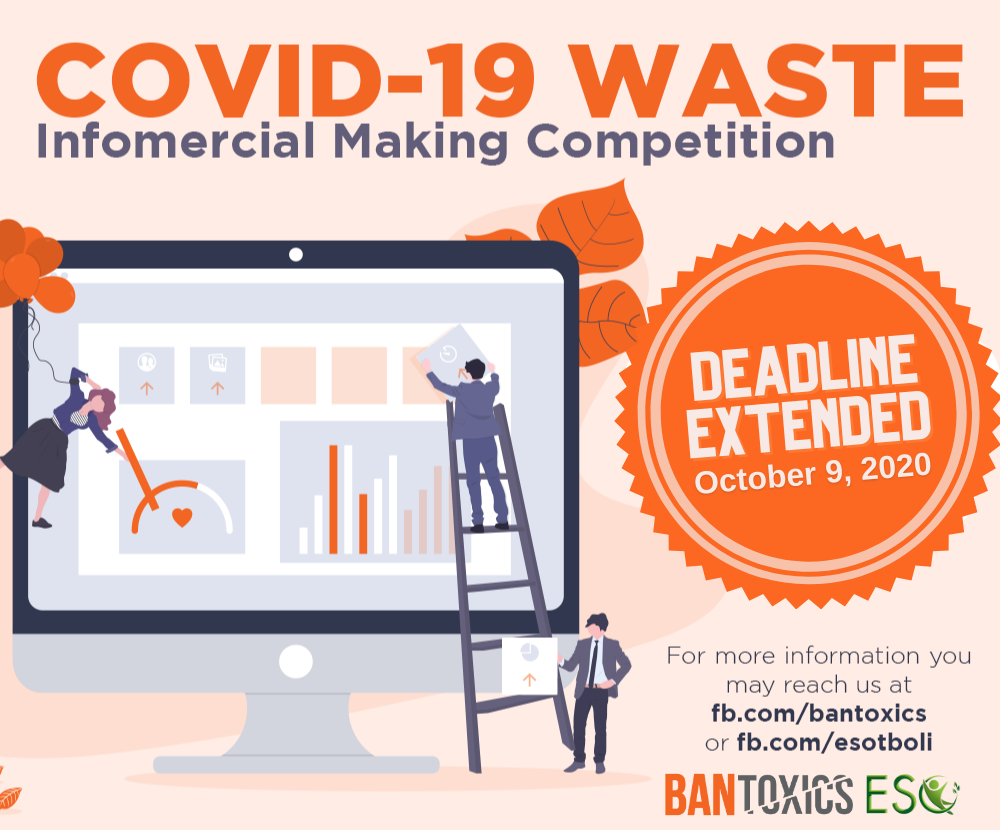
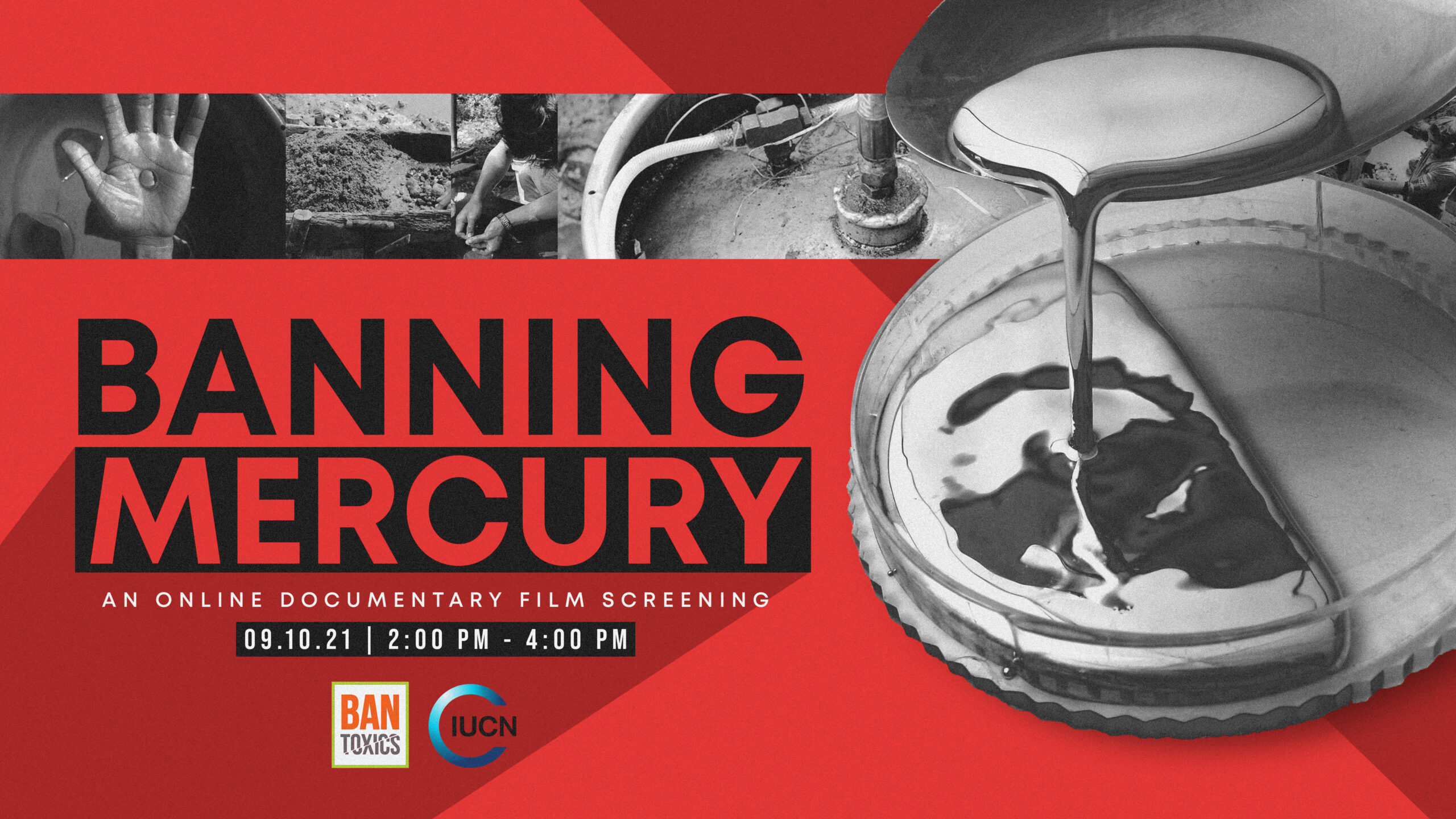
Launched ‘Mainstreaming Children’s Rights in Environmental Law’ toolkit | 2021
BAN Toxics’ Founder and Former Executive Director, Richard Gutierrez, Joins Minamata Convention Secretariat as the Programme Management Officer | 2021
Implemented the research project “Development of Capacity for the Substitution and Environmentally-Sound Management of Mercury-Containing Medical Measuring Devices,” with support from the Japan-ASEAN Integration Fund | 2021
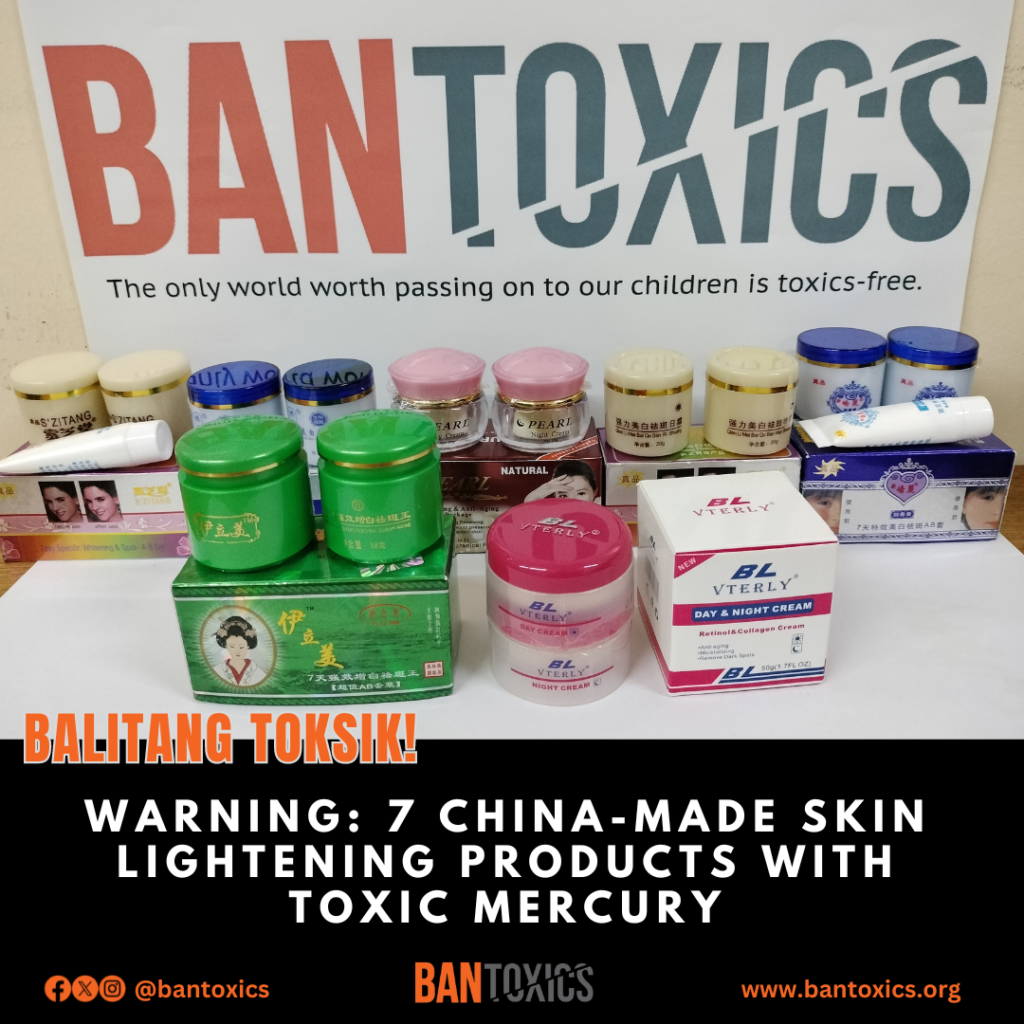
Launched “Balitang Toksik!” in 2022. Created as an online news alert of the organization, Balitang Toksik aims to raise awareness by providing news updates on different toxic chemicals, wastes, and pollution issues that can affect human health and the environment.
Significant Breakthroughs in Policy Development in 2022
- Banning of all Mercury-Added Thermometers, Sphygmomanometers, Dental Amalgam Capsules and Liquid Mercury for Use in Dental Restorative Purposes. Supplemented by BAN Toxics’ research paper on the “Situation Assessment of Mercury-Containing Medical Measuring Devices in the Philippines”, the FDA implemented a memorandum circular on the ban of mercury-added products in the Philippines.
- Revision of Republic Act 7076 (DAO 2022-03). In coordination with BAN Toxics, regulations for streamlining the requirements and processing of the declaration of Minahang Bayan and Application for Small-Scale Mining Contract were established.
Launched “Usapang Konsyumer” in 2022. An online advocacy initiated by the organization that aims to provide consumers an opportunity to understand consumer-related laws and programs of different government agencies. This also includes efforts of civil society organizations on promoting consumer welfare and protection through fostering well-informed decisions by information dissemination.
Contributed to the Zero Mercury Working Group’s 2022 study on the presence of mercury-added skin-lightening products.
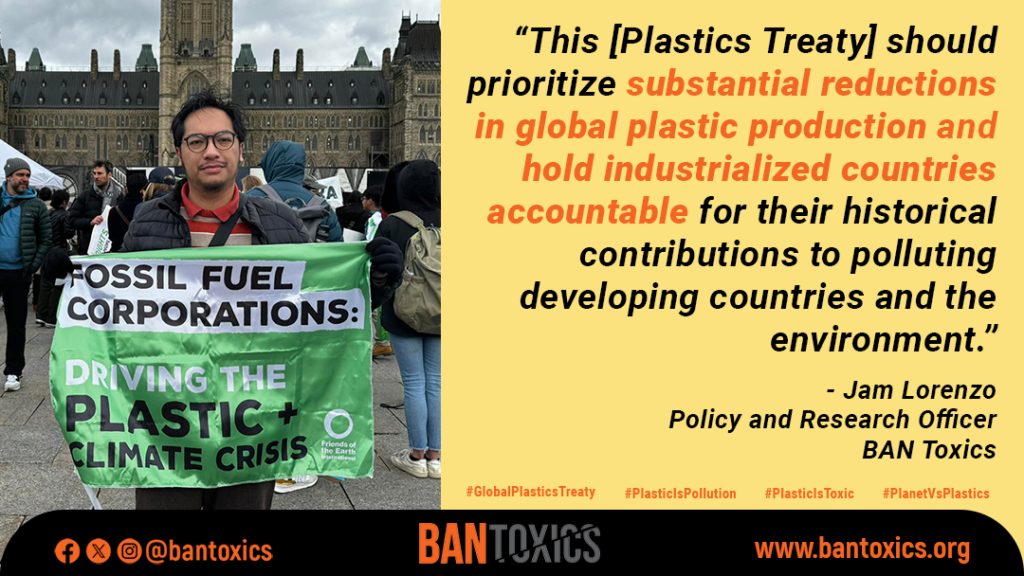
Participated in the Intergovernmental Negotiating Committee Sessions for the Global Plastics Treaty, as part of the civil society delegation led by Global Alliance for Incinerator Alternatives (GAIA).
Launched the Philippine Healthcare and Mercury Wastes Management Project (PHCWMP) in December 2023, and successfully commencing project implementation in 2024. BAN Toxics serves as the Executing Entity of the PHCWMP, with the DENR-Environmental Management Bureau as the National Executing Agency. The 5-year project is funded by the Global Environment Facility (GEF), and is being implemented by the United Nations Industrial Development Organization (UNIDO).
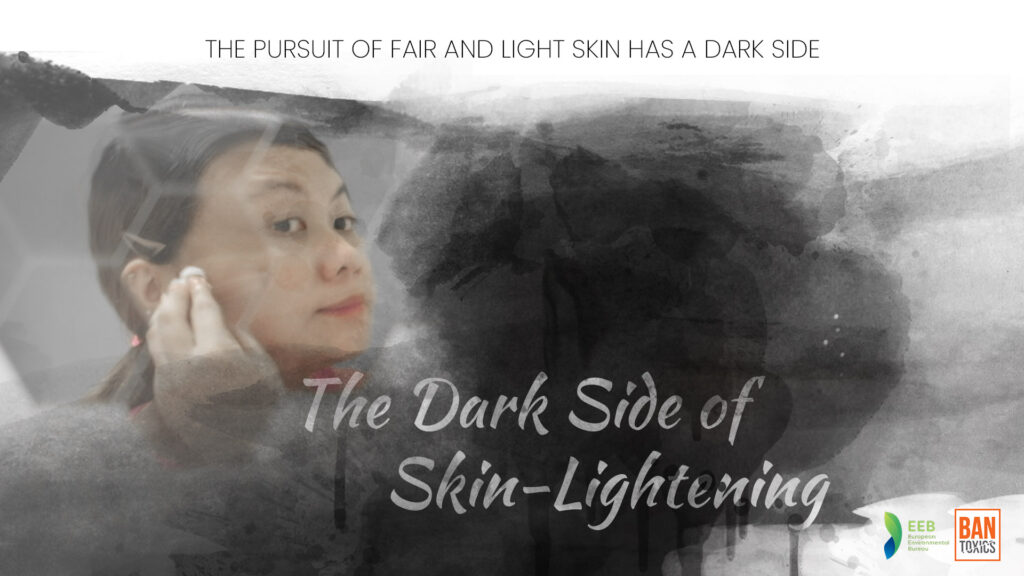
Produced and Launched “The Dark Side of Skin-Lightening,” with support from the European Environmental Bureau (EEB), in 2024. The 13-minute documentary sheds light on the hidden dangers lurking within many skin-lightening products (SLPs) due to their mercury content. The video was launched at the La Consolacion University Philippines (LCUP) in Malolos, Bulacan, to an audience of around 1,300 senior high school students and 300 college students, as part of the school’s Earth Day Celebration.
Publications
- Illicit Mercury Flows and Governance Practices in Mindanao, Philippines | 2019
- ASGM Baseline Study in Camarines Norte and T’boli, South Cotabato | 2019
- ASGM Market Study and Business Model | 2019
- Mainstreaming Children’s Rights in Environmental Law | 2021
- Situation Assessment of Mercury-Containing Medical Measuring Devices in the Philippines | 2021
- Technical Guidelines for the Environmentally Sound Management of Mercury-Containing Medical Measuring Devices in the Philippines | 2021
- Situation Analysis of Mercury Trade in Vietnam | 2021
- Assessment of Alternatives to Mercury-Added Products | 2021
- Assessing the Potential Health Risks of Informal E-Waste Recycling in Quezon City’s Junk Shops | 2022

